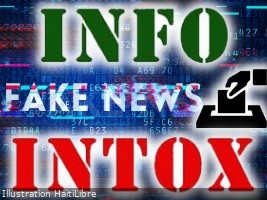As Haiti prepares for its 2025 elections, a critical gap in the draft Electoral Decree has raised concerns about the integrity of the democratic process. The current draft, under public consultation, lacks specific provisions to address online disinformation, social media-sponsored campaigns, and the protection of candidates from cyber harassment. This oversight poses a significant threat to the credibility and fairness of the elections, particularly in a nation where 2.65 million active social media users—representing 22.4% of the total population and 35.4% of adults—rely heavily on platforms like Facebook, WhatsApp, YouTube, and TikTok for political engagement. Without regulation, the electoral process is vulnerable to manipulation, opaque financing, and cyberviolence, which could undermine public trust and democratic stability. Key risks include the rapid spread of rumors, deepfakes, and falsified content; untraceable political advertising; harassment of candidates, especially women; and the erosion of voter confidence. To address these challenges, experts recommend integrating a clear legal framework into the Electoral Decree, mandating transparency for sponsored messages, and establishing a National Digital Electoral Monitoring Unit to detect and respond to threats swiftly. These measures, aligned with international best practices, aim to safeguard the right to information, ensure campaign transparency, and protect democratic participation. The author, Jean Marie Altéma, a specialist in digital strategy and governance, urges electoral authorities, policymakers, media, civil society, and international partners to act urgently to preserve the integrity of Haiti’s elections and uphold democratic peace.
